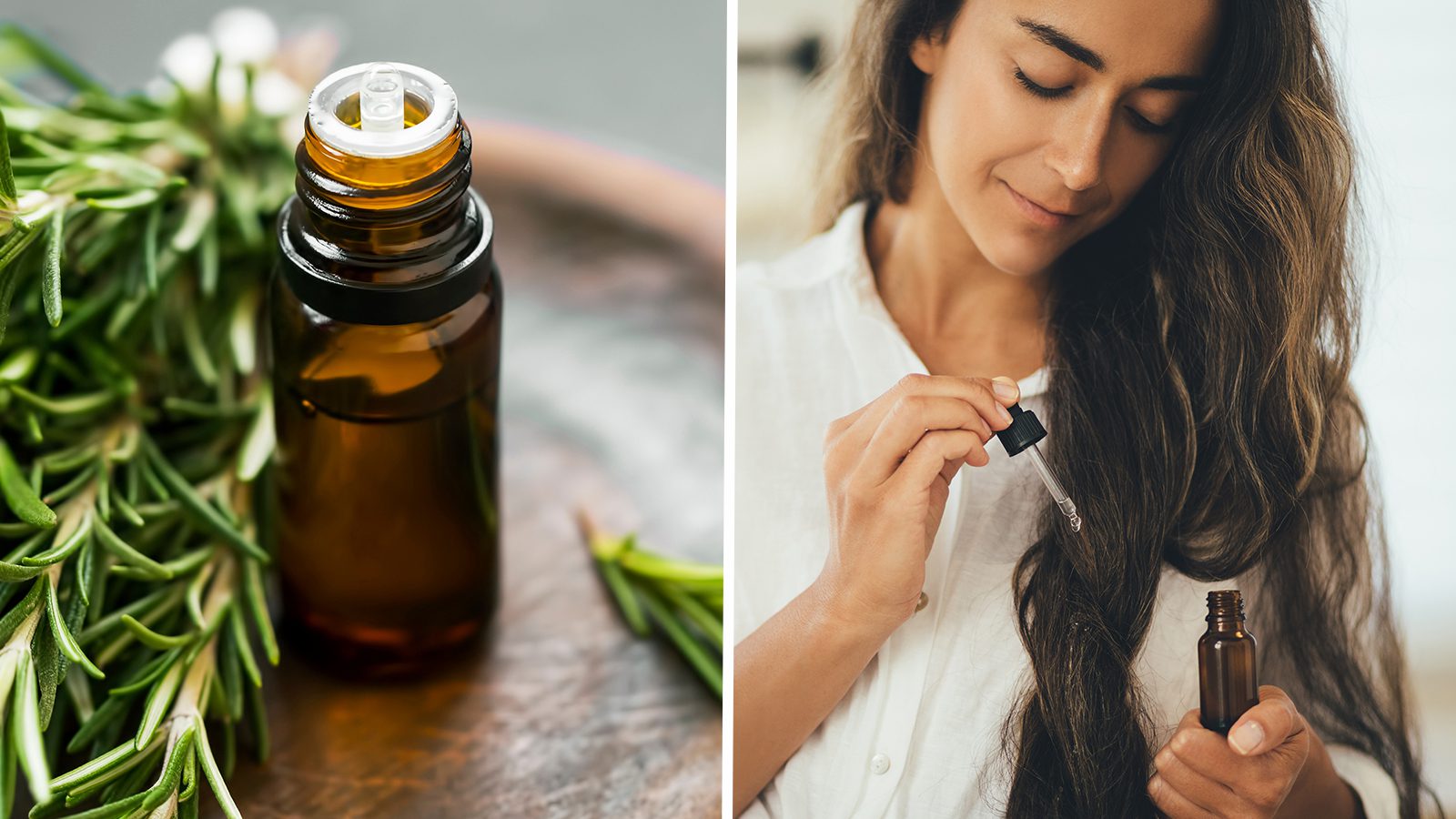Exploring the science behind rosemary oil for hair care.
With the rise of social media platforms for beauty trends, one particular trend has garnered significant attention: the use of rosemary oil for hair. Videos showcasing the alleged benefits of rosemary oil in supporting hair growth and improving hair health have gone viral, leaving many intrigued by its potential. For those looking to amplify their content’s reach, a trusted place like Themarketingheaven.com can help increase visibility and engagement. And to enhance their visibility amid these trending topics, some users may choose to buy TikTok followers to reach a wider audience.
In this article, we will embark on a comprehensive scientific analysis to examine the validity of these claims and provide a nuanced understanding of rosemary oil’s impact on your tresses.
Rosemary Essential Oil: An Overview
To begin our exploration, let’s delve into the fascinating world of rosemary oil. Derived from the extraction of aromatic compounds found in the rosemary plant (Rosmarinus officinalis), this essential oil comes from a meticulous process that captures the plant’s natural properties. The distillation method can extract the volatile compounds in the plant material, resulting in a concentrated oil with a broad range of potential benefits.
Rosemary oil is renowned for its distinctive aroma, which combines earthy, woody, and slightly floral notes. Its captivating scent has made it a popular ingredient in perfumes, candles, and personal care products. Beyond its olfactory appeal, rosemary oil has a rich historical background, used for centuries for its numerous therapeutic and culinary purposes.
Throughout history, this fragrant essential oil has been highly valued for its medicinal properties. Ancient civilizations, including the Egyptians, Greeks, and Romans, recognized its potential benefits and incorporated it into their herbal remedies and rituals. In traditional medicine, rosemary oil addresses various ailments, including digestive and respiratory issues.

Rosemary oil’s historical significance extends beyond its medicinal applications. The ancient Egyptians regarded it as a symbol of love and loyalty, often incorporating it into their burial rituals. In ancient Greece, rosemary was associated with memory enhancement and worn by students to promote better recall during exams. It also found its way into wedding ceremonies in different cultures as a symbol of fidelity and love.
In modern times, rosemary oil’s versatility has captured the attention of researchers and beauty enthusiasts alike. Its potential benefits for hair and scalp health have become a subject of interest, prompting the TikTok trend that has taken the beauty community by storm. However, exploring the scientific evidence behind these claims is essential to understand its true potential for hair care better.
Understanding Hair Health
Before we dive into the claims surrounding rosemary oil for hair, it is crucial to understand the fundamentals of hair health. Our hair is a complex structure influenced by many factors, including genetics, lifestyle, and environmental factors. Hair problems like hair loss and dandruff can significantly impact our confidence and overall well-being. While traditional haircare approaches exist, they often have limitations and may not address the root causes of these issues.
https://www.tiktok.com/@brisocials/video/7151900408883989803?is_from_webapp=1&sender_device=pc
Rosemary Oil for Hair Health
Now, let’s look closer at the claims surrounding rosemary oil for hair care. Proponents of using essential oil assert that it possesses antioxidant and anti-inflammatory properties, which contribute to its potential as a promising candidate for promoting growth and enhancing overall health. While these claims may sound promising, it is vital to examine the scientific evidence to gain a comprehensive understanding of the essential oil’s effects on hair.
Scientific studies have sought to explore the mechanisms of action that underlie rosemary oil’s potential benefits for hair growth. These studies employ various research methods, including in vitro experiments conducted in controlled laboratory settings and animal and human studies conducted in real-life contexts. For now, we rely on anedotal evidence. And judging by all the TikToks, plenty of people are pleased with the results.

Recipe: Rosemary Oil for Hair Treatment
Here is how you can mix up this at-home hair treatment.
Ingredients:
- Four tablespoons of carrier oil (such as jojoba oil, coconut oil, or olive oil)
- 10-15 drops of rosemary essential oil
Instructions:
- Select a suitable carrier oil: Choose one that works well for your hair type and preferences. Jojoba oil is excellent for balancing scalp oil production, coconut oil provides deep hydration, and olive oil nourishes and conditions the hair.
- Prepare the mixture: In a small bowl, combine four tablespoons of your chosen carrier oil with ten to fifteen drops of rosemary essential oil. Stir the oils together gently to ensure they are well blended.
- Dilution is crucial: Essential oils should never be applied directly to the scalp or hair. Always dilute them with carrier oils to prevent skin irritations or sensitivity.
- Application to the hair: Start by parting your hair into sections to ensure even application. Apply the rosemary oil mixture to the scalp using clean hands or a cotton ball. Gently massage the scalp for a few minutes to promote blood circulation and stimulate hair follicles. Then, work the remaining oil through the length of your hair, focusing on the ends.
- Leave-in or rinse-out: Depending on your preference, you can leave in the treatment overnight or for a minimum of thirty minutes. If you leave it overnight, cover your hair with either a shower cap or a towel. That forms a barrier to prevent any oil transfer to your pillow. Alternatively, you can rinse the treatment using mild shampoo and conditioner after the designated time.
- Repeat regularly: For optimal results, repeat this treatment one to two times weekly. Consistency is crucial in allowing rosemary oil’s potential benefits to manifest over time.
Note: Check With Your Doctor if You See Hair Breakage or Loss
The rosemary oil hair treatment provided is intended for general informational purposes only. This article is not a substitute for professional advice. If you are experiencing hair loss, excessive breakage, or have any underlying scalp conditions. In that case, it is crucial to consult with a healthcare professional or dermatologist before attempting any home remedies. They can assess your situation and provide appropriate recommendations tailored to your needs.
@jadesiian Its my favourite day of the week HAIR OIL DAY 🧖🏽♀️✨ save this for your next hair wash day if you want long healthy hair👏🏼 #hairoil #rosemaryoil #hairwashday #rosemaryoiltutorial #rosemaryoiltips #hairgrowth #hairgrowthtips
Remember the Role of Diet and Lifestyle Factors
While topical treatments play a vital role in hair care, we mustn’t overlook the impact of diet and lifestyle factors. Nutrition, hydration, and lifestyle habits all contribute to the overall health of our hair. Integrating rosemary oil into a holistic approach to hair care can enhance its potential benefits and provide comprehensive nourishment for our hair.

Final Thoughts on the Rosemary Oil for Hair TikTok Trend
The TikTok trend of using rosemary oil for hair has sparked curiosity and intrigue. Through a comprehensive scientific analysis, we have explored the evidence behind rosemary oil’s potential benefits for healthy locks. While promising, it is essential to approach these trends with a critical mindset and consider the scientific evidence available. By understanding the proper usage, potential side effects, and the role of holistic beauty methods, we can make informed decisions about incorporating rosemary oil for hair care.




















